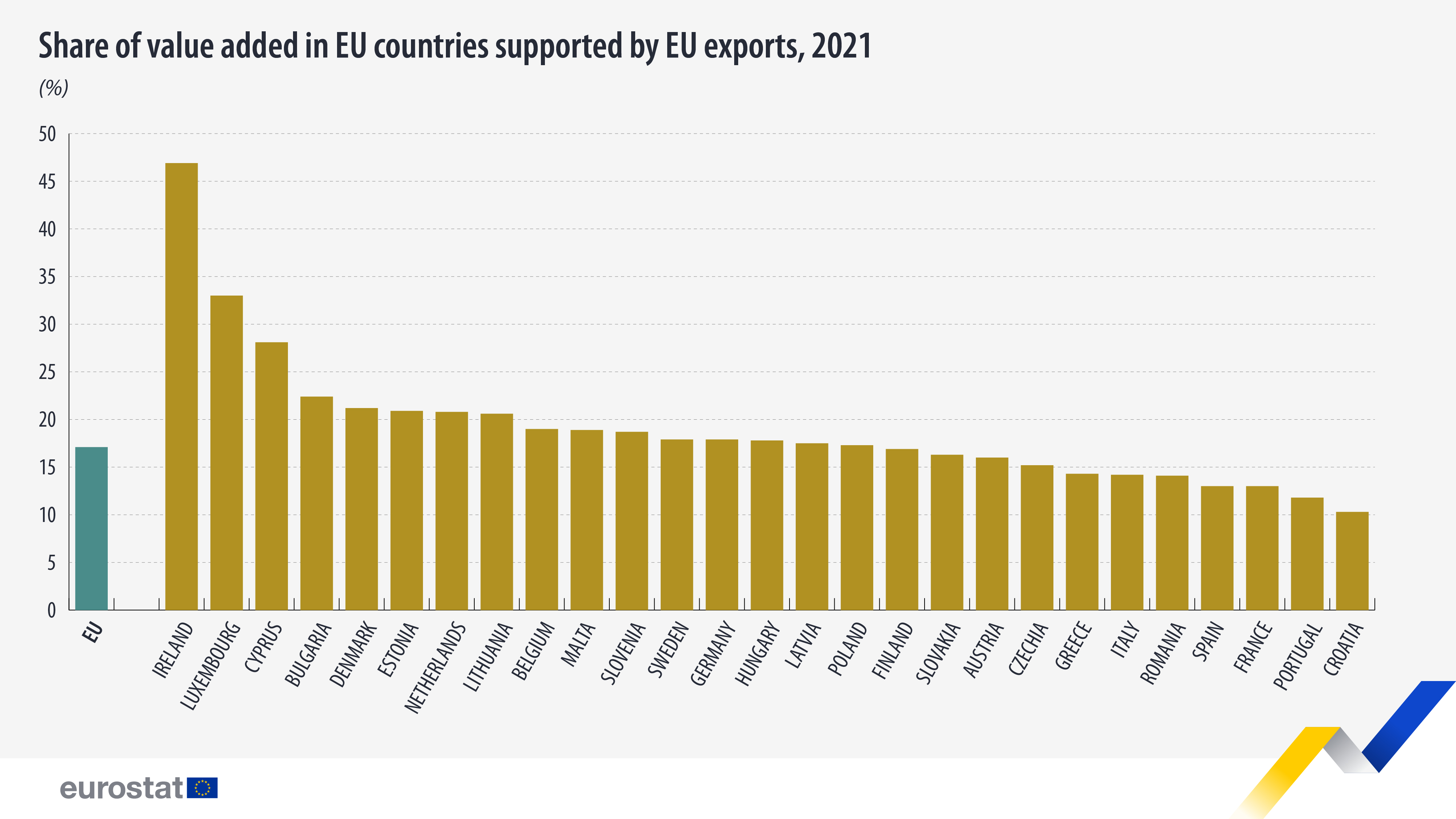In 2021, the employment of 30.4 million persons in the EU was supported by exports to non-EU countries, a slight increase from 29.9 million in 2020 (+1.7%).
In relative terms, export-supported employment represented 15% of total employment in the EU (210 million), equivalent to just over 1 in 7 people employed within the EU.
Germany was the EU country with the highest absolute level of employment supported by EU exports. In 2021, the employment of 6.9 million people in Germany was supported by exports from the EU, including from Germany itself. France and Italy (both 3.4 million people) had the following highest levels of export-supported employment.
However, in relative terms, the highest share of employment supported by exports to non-EU countries was recorded in Ireland (27%), followed by Luxembourg (25%) and Bulgaria (23%).
These results were compiled using the FIGARO tables (Full International and Global Accounts for Research in input-Output analysis), whose update for the time series 2010-2021 has also been published today.
Source dataset: naio_10_faex
Croatia (10%), along with France and Greece (both 12%), recorded the lowest share of employment supported by EU exports in 2021.
Value added of extra-EU exports up to €2.226 billion in 2021
EU exports supported €2 226 billion in value added in 2021, equivalent to 17% of the €12 993 billion in total value added created in the EU.
Compared with 2020, when €1 962 billion of value added (16%) was supported by exports to non-EU countries (on a total EU value added of €12 032 billion), this represents an increase of €0.264 billion (+0.8%).
Again, in terms of absolute value added supported by EU exports, Germany was the EU country with the highest value in 2021: €583.6 billion. Germany was followed by France (€287.2 billion) and Italy (€227.8 billion).
As a share of the total value added, the highest values supported by EU exports were nevertheless found in Ireland (47%) and Luxembourg (33%).
By contrast, the lowest share of value added generated by EU exports were recorded in Croatia (10%) and Portugal (12%).
Source dataset: naio_10_favx


